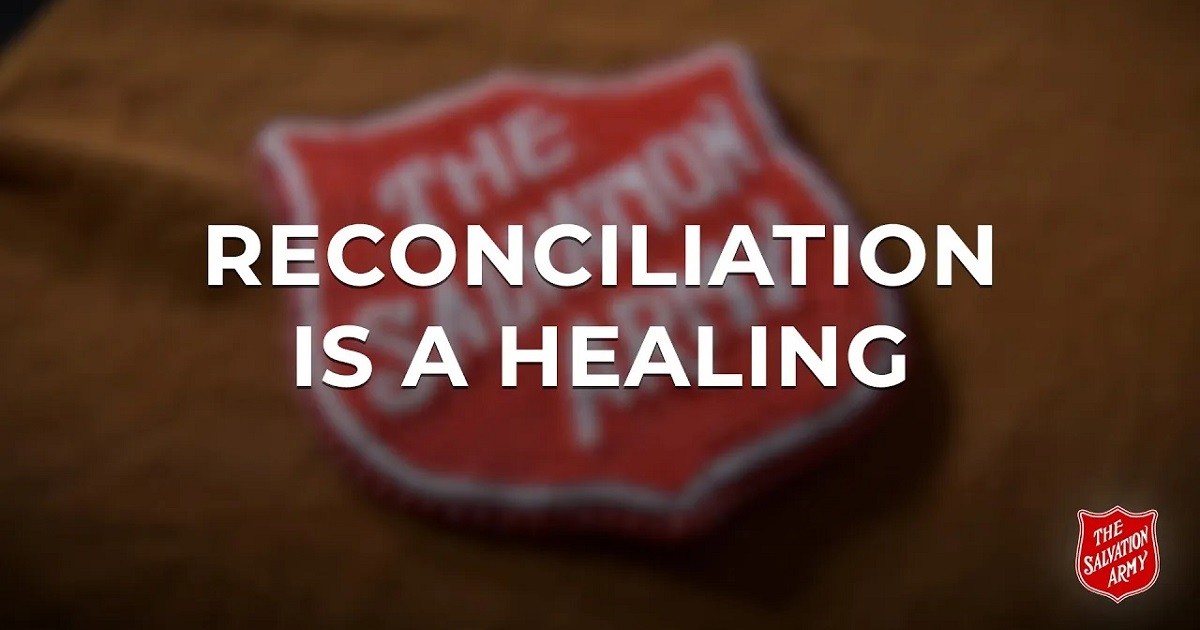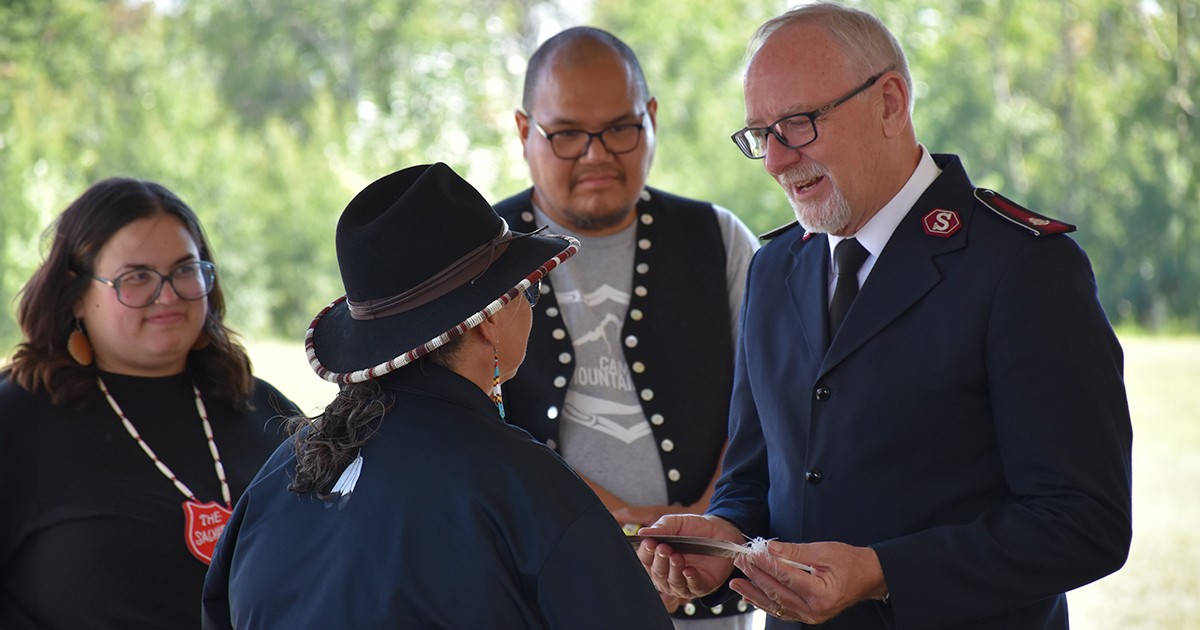The COVID-19 pandemic has shaken our world. So much of what we took for granted has been altered. While our greatest concern is to love our neighbours and prevent the spread of this virus, we are also endeavouring to create some sense of “normal” in our day-to-day lives. The ability to shop for groceries, send our children to school and worship as a church community are among the activities that have required creative and innovative thinking.
For leaders, these skills are an often-overlooked capability. In fact, in the past, they could be a detriment to those aspiring to leadership. However, in today’s everchanging world—sometimes described by the phrase VUCA: volatile, uncertain, complex, ambiguous—we clearly need to be creative and innovative.
Over the past year, we have been exploring the LEADS Leadership Capability Framework as a strategic approach to leadership development (visit salvationist.ca/leads). The final domain is SYSTEMS TRANSFORMATION.
This domain looks at leadership from a much higher level and moves beyond the ability to manage oneself and others. Leaders need to be able to address concerns at a level beyond their own locus of control and see the view from the “balcony.” They need to consider how their decisions and actions might impact the entire organization.
This domain states that leaders should be able to: demonstrate systems and critical thinking; encourage and support innovation; orient themselves strategically to the future; and champion and orchestrate change.
When leaders demonstrate critical thinking skills, they question and challenge the status quo. They identify issues and challenges, and respond by implementing solutions that will work at the system level. Their solutions are process-oriented and are usually innovative in nature. With respect to innovation, leaders who excel in this domain are not only creative themselves, but also foster an environment where others are encouraged to be creative and innovative, with many of their ideas resulting in system changes.
Leaders who are oriented to the future are extremely good at scanning the environment and searching for ideas and solutions. They can anticipate not only the future needs of the organization, but also solutions that already exist that might meet those needs. They are aware of emerging trends and the impact of those trends on the organization.
Finally, excellent leaders champion and orchestrate change. They actively contribute to the change process and help improve the functioning of the organization. While they may initially question why changes are taking place, they are able to understand the needs of the organization at a higher level and, as a result, move forward with a supportive position for the changes that are being implemented.
Often change is precipitated by outside agencies and circumstances, although rarely at the level of a global pandemic. At other times, the need for change is created from within an organization. Perhaps the changes are driven by the need for an organization to move away from previous practices and make a significant move forward.
Mobilize 2.0—Inspired for Mission, Positioned for Growth offers an indication of significant change that is to come to The Salvation Army in Canada and Bermuda. Commissioner Floyd Tidd speaks of a season of transformation and the need for the territory to respond to a fresh wind of God. I suggest that this is a season of change and transformation. When coupled with the response of our communities to the global pandemic, clearly there appears to be a time of change in the near future.
How are our leaders positioned for the change that is coming? Do we, as leaders, demonstrate systems and critical thinking, and encourage and support innovation? Do we, as an organization, orient ourselves strategically to the future, as well as champion and orchestrate change?
In previous articles, Salvation Army officers and employees shared how implementing what they learned from the LEADS learning series, which were offered across the territory, expanded their leadership capabilities.
These capabilities are now being woven into not only our performance excellence and coaching (PEAC) review process for leaders, but also job descriptions and “briefs of appointment.” While the pandemic has had an impact on recent learning opportunities, we continue to develop our leaders by sharing the LEADS Leadership Capability Framework.
Paul Carew is the leadership development secretary in the Canada and Bermuda Territory.
Illustration: Irina Griskova/iStock via Getty Images Plus
For leaders, these skills are an often-overlooked capability. In fact, in the past, they could be a detriment to those aspiring to leadership. However, in today’s everchanging world—sometimes described by the phrase VUCA: volatile, uncertain, complex, ambiguous—we clearly need to be creative and innovative.
Over the past year, we have been exploring the LEADS Leadership Capability Framework as a strategic approach to leadership development (visit salvationist.ca/leads). The final domain is SYSTEMS TRANSFORMATION.
This domain looks at leadership from a much higher level and moves beyond the ability to manage oneself and others. Leaders need to be able to address concerns at a level beyond their own locus of control and see the view from the “balcony.” They need to consider how their decisions and actions might impact the entire organization.
This domain states that leaders should be able to: demonstrate systems and critical thinking; encourage and support innovation; orient themselves strategically to the future; and champion and orchestrate change.
When leaders demonstrate critical thinking skills, they question and challenge the status quo. They identify issues and challenges, and respond by implementing solutions that will work at the system level. Their solutions are process-oriented and are usually innovative in nature. With respect to innovation, leaders who excel in this domain are not only creative themselves, but also foster an environment where others are encouraged to be creative and innovative, with many of their ideas resulting in system changes.
Leaders who are oriented to the future are extremely good at scanning the environment and searching for ideas and solutions. They can anticipate not only the future needs of the organization, but also solutions that already exist that might meet those needs. They are aware of emerging trends and the impact of those trends on the organization.
Finally, excellent leaders champion and orchestrate change. They actively contribute to the change process and help improve the functioning of the organization. While they may initially question why changes are taking place, they are able to understand the needs of the organization at a higher level and, as a result, move forward with a supportive position for the changes that are being implemented.
Often change is precipitated by outside agencies and circumstances, although rarely at the level of a global pandemic. At other times, the need for change is created from within an organization. Perhaps the changes are driven by the need for an organization to move away from previous practices and make a significant move forward.
Mobilize 2.0—Inspired for Mission, Positioned for Growth offers an indication of significant change that is to come to The Salvation Army in Canada and Bermuda. Commissioner Floyd Tidd speaks of a season of transformation and the need for the territory to respond to a fresh wind of God. I suggest that this is a season of change and transformation. When coupled with the response of our communities to the global pandemic, clearly there appears to be a time of change in the near future.
How are our leaders positioned for the change that is coming? Do we, as leaders, demonstrate systems and critical thinking, and encourage and support innovation? Do we, as an organization, orient ourselves strategically to the future, as well as champion and orchestrate change?
In previous articles, Salvation Army officers and employees shared how implementing what they learned from the LEADS learning series, which were offered across the territory, expanded their leadership capabilities.
These capabilities are now being woven into not only our performance excellence and coaching (PEAC) review process for leaders, but also job descriptions and “briefs of appointment.” While the pandemic has had an impact on recent learning opportunities, we continue to develop our leaders by sharing the LEADS Leadership Capability Framework.
Paul Carew is the leadership development secretary in the Canada and Bermuda Territory.
Illustration: Irina Griskova/iStock via Getty Images Plus










Comment
On Thursday, December 3, 2020, Leo Mirtitsch said:
Leave a Comment